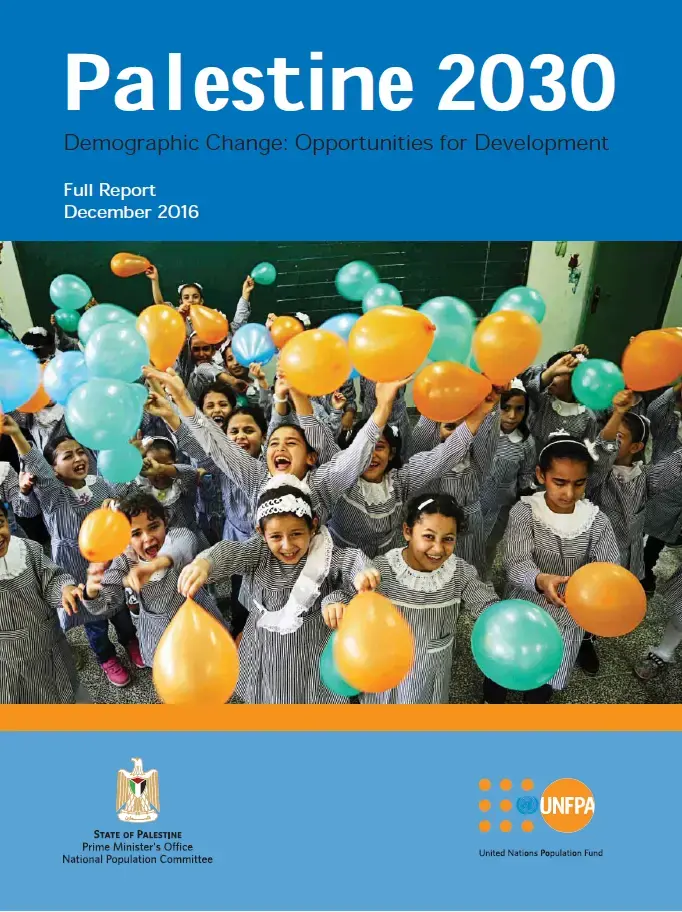Proper development planning can only take place with a thorough understanding of demographic needs and projections. As such, this study lays out the context and milieu for the State of Palestine's population projections, then goes onto estimate how many people the state will be expected to provide for through 2050. Population projections are made for various key groups (women, children, youth, refugees and the elderly), while identifying critical issues related to their growth and significance in society and the economy. Projections are also made for key regions: the West Bank, Gaza Strip and the various governorates.
Over the next two decades, the change in the population age structure in Palestine opens a window of opportunity for economic growth and development. Such demographic change offers both opportunities and challenges. It will affect the availability of resources for development and the demand for public services. Sound policies will determine how Palestine manages demographic change towards development and investment in the growing young and working age population, providing better education, health services and women's empowerment, and offering a foundation for growth among other policies.
The key challenge to achieving this demographic gain is the ongoing Israeli occupation and the severe restrictions on the movement of both people and goods, which result in highly fragmented and distorted local economies with limited capacities for growth. Such complexity and uncertainty have also affected Palestinians' ability to establish long-term policies and plans. Until there is a permanent peace agreement, political instability and the occupation will remain the primary obstacles to making development gains.


